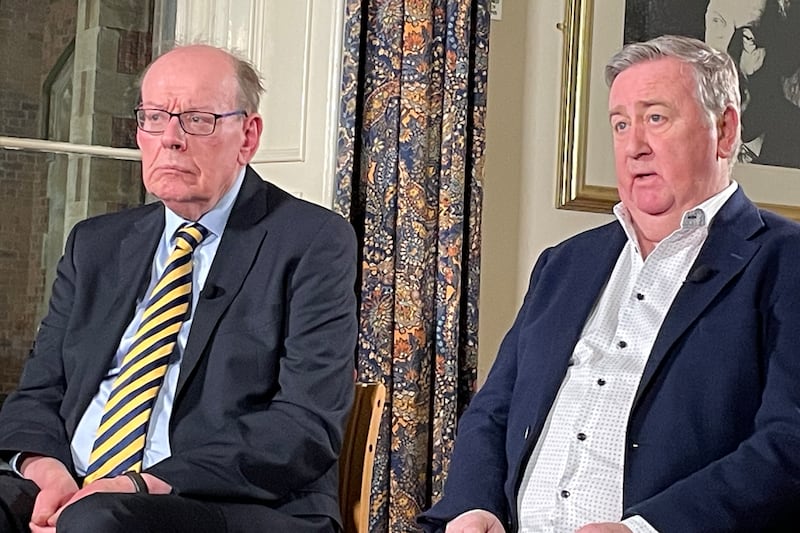A boost to cancer research and care following the Good Friday Agreement has helped improve outcomes for patients and even save thousands lives, new research has found.
A study led by Queen's University's Professor Mark Lawler has been published in the European Journal of Cancer, and examines cancer research across Ireland in the last 25 years.
The research found that between 1998 and 2021, there was a 13-fold increase in the number of research papers published jointly between cancer researchers in Ireland and the Republic.
It also showed there was a 45-fold increase in research papers involving collaboration on both sides of the border and the United States.
The study highlighted the increased quality of research, with more papers being published in high impact journals.
This significant increase in quality and quantity of cancer research was due to the success achieved through the Ireland - Northern Ireland – US National Cancer Institute Cancer Consortium.
Read more: QUB professor exposes Europe's cancer care failings with data project
This unique partnership was established in 1999 as a direct result of the Good Friday Agreement.
The consortium enabled more than 30,000 cancer patients to be enrolled in clinical trials, gaining access to the latest treatments and therapies, with thousands of lives saved as a result.
Outcomes for breast cancer in Northern Ireland went from being the worst in the UK, to the best in less than two decades.
Prior to the agreement and creation of the consortium, cancer services were fragmented in the north, with wide variations in treatment and the poorest outcomes for most cancer types in the UK.
Professor Lawler said: “We have shown through this research the significant health dividend that the peace process and the Belfast/Good Friday Agreement have delivered. The unique partnership between Ireland, Northern Ireland and the US National Cancer Institute has been truly transformative, saving thousands of lives.”
Co-author on the study, Professor Richard Sullivan, who is the director of the Institute of Cancer Policy and Co-Director of the Centre for Conflict & Health Research at Kings College London, said: “What has been achieved on the island of Ireland is truly amazing. It is now regarded globally as one of the key exemplars of what health diplomacy can achieve.”








